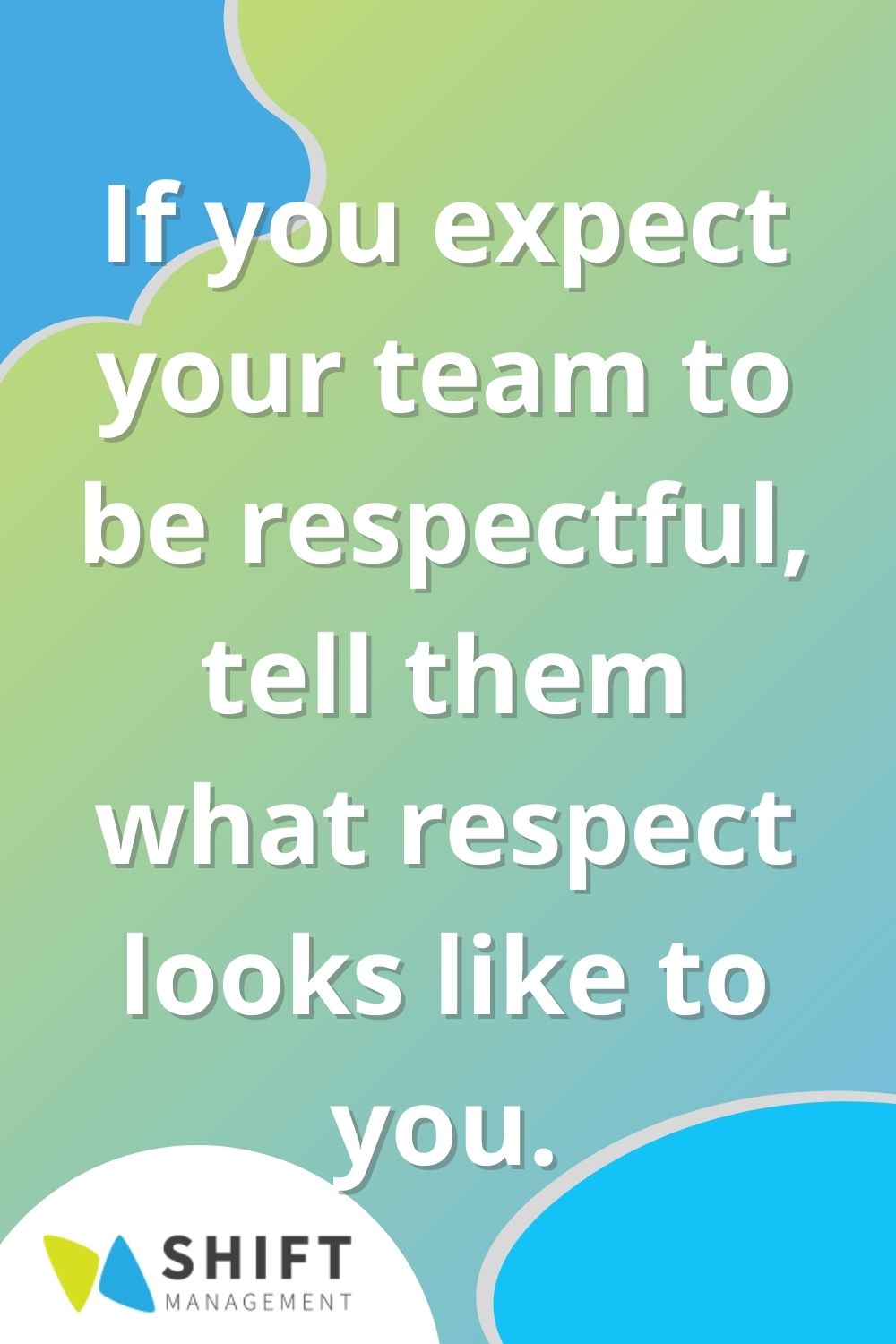So your time has come and you’re officially the new supervisor!
Of course you are feeling both excited and perhaps a bit scared at the same time. You want to make a good impression and you want people to like you, but you recognize a need for discipline and want to make sure that your team respects you. You like some of what your predecessors implemented but the truth is that you’re certain you’ll do a better job than they did…some of their mistakes are, of course, so obvious.
Because you want to be the best new supervisor there ever was, you work to make a good impression and are eager to learn and take on new job responsibilities. You’re actively helping others with their jobs – sometimes even going over and above what your job description requires. Your loyalty to your company is high and you expect the same from your subordinates.
In all of your doing, you can count on at least one thing being certain: With intentions this pure you are perfectly set up for the worst interpersonal messes you have experienced since junior high!
Your desire to make things work better - increased efficiency, better results, more commitment - will position you as a target for conflict. It's inevitable, but all is not lost! Share on X
Check out 10 tips you can use to go from rough waters to smooth sailing in your role as a new supervisor:
Tip #1: On making a good impression
Never forget that it’s not about you – it never was. It’s about how you build your team, and get them to meet the goals they have been assigned. The sooner you stop focusing on how you look to others and start focusing on what the team needs to be successful, the better your impression will be.
Tip #2: On getting others to like you
As a supervisor you need to establish your authority, expectations and parameters with your team (learn more about the difference between authority and credibility HERE). They will like you if you provide those guidelines, clearly communicate them, and if you are fair and consistent with your follow-through. Promising little favors, giving in, or letting things slide because you want people to like you first – these are all deep holes that are hard to get out of later.
Tip #3: On setting the rules
People want to hear the rules from you and need to know how you will enforce them. And it’s important to remember that what the previous supervisor did or if the company rules are in the handbook don’t always matter. Once you’ve decided what your goals are, your job is to create rules that will help get those results, and you’re best to do that by consulting with your team. You’ll find that rules, especially ones that are clearly linked to desired outcomes, can give people a sense of security and they actually allow them to do their jobs better. Be the one to communicate those expectations, and share them often.

Tip #4: On naming your expectations
Expectations are about attitudes you want to see, the values you have and the quality standards you are working towards. If you expect your team to be respectful, tell them what respect looks like to you. If you expect opinions during safety meetings, let them know. Ask your team if you can count on them to meet those expectations and secure their commitment. You’ll find that most people will do their best to meet clearly explained expectations most of the time, and when they don’t, it’s usually because they couldn’t far more often than because they wouldn’t.
Tip #5: On learning the ropes
Remind yourself that you are new to the job and keep telling yourself you only know what you know. Stay humble and be open to learning from superiors and colleagues – these will be your lifelines regardless of how many times you are promoted. Even when you think you know better, remember that your theories have not yet been tested in the fire of experience. Keep your credibility high by taking the time to understand others’ opinions and to work with them to make changes. Once your reputation is more established, you’ll be able to use that to gain momentum and cooperation.
Tip #6: On your work responsibilities
This one’s simple: Stop doing your old job. Usually you are promoted because you did your job well but now you have a managing skill set to learn. If you keep doing your old job, the team will slack off and expect you to cover for their mistakes. As a manager you have to provide the environment and tools for other people to do the work. Then let them do it.
Tip #7: On old friendships
It hurts, but you can’t keep your old buddies, at least not in the same way: trying to keep up the friendship as if nothing has changed will not work, because the truth is that A LOT has changed. You are now responsible for evaluating these people. You decide whether or not they get a raise, more hours, less hours, the vacation time they ask for. And those power dynamics change relationships. You’ll be better off to start making new friends among your supervisor and management colleagues.

Tip # 8: On keeping your promotion
In your desire to solve everything that comes up, there’s a good chance that you will overextend yourself, miss deadlines, and tick off all your colleagues. Avoid this by asking yourself just one question: “Is this my problem?” If not, leave it be. Only take on what is in your control, and don’t be afraid to delegate or hold others responsible for fulfilling their roles.
Tip # 9: On showing appreciation to your employees
There is only one reason why you have your job as a supervisor: because there are employees. Without them, you would be unemployed and your organization’s profits would be $0. So, show your employees appreciation and don’t expect that their bi-weekly automated paycheck deposit is enough. People need to feel valued and appreciated, so find ways that suit your style and personality (and theirs) to let them know that they matter and that you are grateful for what they bring to the workplace. You’ll be surprised at how far this goes in building trust, loyalty, and helping you get the results your department needs.
Tip #10: On managing up
When you step into a management role it means you have to negotiate both up and down. Figure out what your superiors want and learn to read their styles and preferences. Provide them information the way they want to receive it (learn more on how to do that HERE). Keep them in the loop by providing them the information they need before they need it – even if they haven’t asked directly for it (you never know when this step could be a saving grace for both you and them in the event something goes wrong or right). Above all, remember that your managers are people too: they need input, they have strengths, and they have weaknesses. Find ways to work with them.
Becoming a new supervisor is a big step in your career and, as with all first steps, you can expect a few stumbles, bumps, and bruises along the way. Invite those missteps into your process and learn from them. Share on X As you move forward, building relationships with your team and colleagues along your way, you’ll increase your authority, credibility, and start getting the results you know your team is capable of.
People who read this article also read…
Removing Obstacles To Team Success
Pre-influencing your team for great attitude
Three Things Your Supervisors Are Doing Wrong And How To Fix Them
Find this useful? Want to go farther?
Click below to check out our Supervisory Leadership course to get the skills you need to lead!
About Marie:
Marie Gervais, PhD., CEO of Shift Management Inc., provides managerial training and workforce interpersonal development to business and industry through online courses and web coaching. She helps individuals and organizations build talent and skills for leadership, communication, and conflict resolution particularly at the supervisory and middle management level. Her work has gained a reputation for excellence in integration and inclusion of the diverse workforce. With her team at Shift Management, Dr Gervais helps clients reach their business goals through team building coaching and industry-specific training development for interpersonal leadership skills. Her impactful digital and multi-media resources have been successfully implemented with many different populations and contexts. The results prove that a learning workplace is a happy and profitable one!
Check out Marie’s podcast Culture and Leadership Connections on Apple Podcasts and on the Shift website to hear stories of leadership and all things cultural. Consider the signature Supervisory Leadership Certificate Course for upskilling your workforce at:
https://shiftworkplace.com/courses/supervisory-leadership/
Contact information:
780 993 1062









